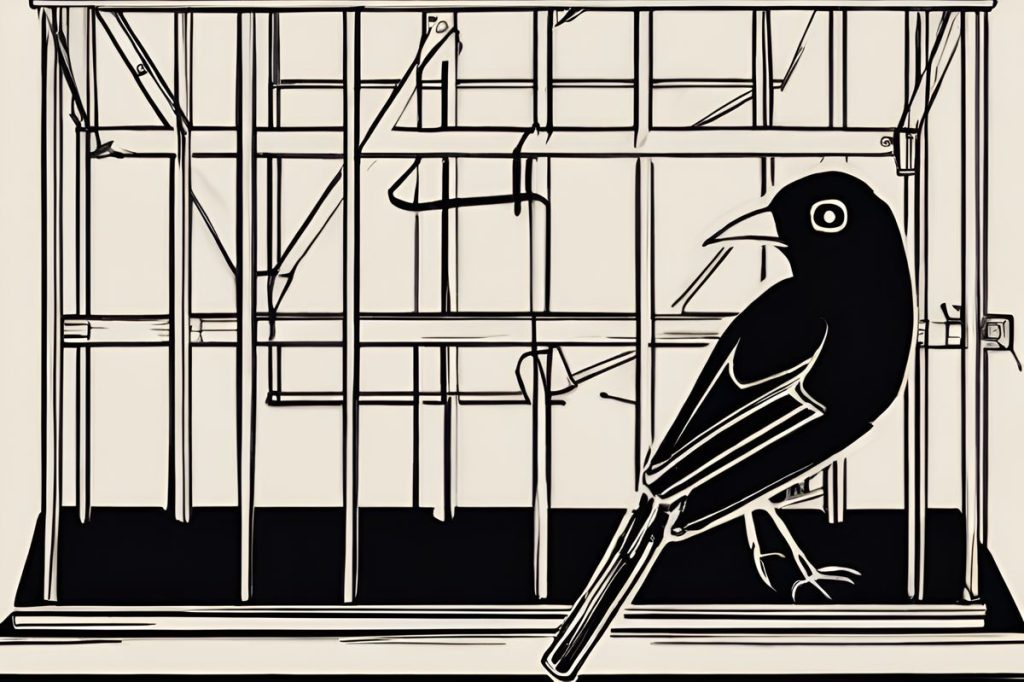Consistent fines year-round are vital to deter illegal bird trapping and protect migratory birds. Discrepancies in penalties, especially lower fines in autumn, lead to increased poaching activities, threatening biodiversity and disrupting ecological functions.
Why are consistent fines important for bird trapping deterrence?
Consistent fines are crucial for deterring bird trapping throughout the year. Seasonal discrepancies in penalties lead to an increase in poaching activities, especially in autumn when fines are lower. Uniform, stringent fines year-round would protect migratory birds and preserve biodiversity by preventing trapping and the disruption of ecological functions like pest control and pollination.
The Current Disparity in Fines and its Effects
The Committee Against Bird Slaughter (CABS) has been at the forefront of advocating for stronger measures against illegal bird trapping. The organization has observed that imposing high fines during the spring season has been effective in deterring these activities. However, CABS has highlighted a concerning discrepancy that arises in autumn. Poachers, it seems, are undeterred in the latter part of the year due to significantly lower fines. Bostjan Debersek, a wildlife crime officer, points out the flaw in this seasonal approach. He suggests a unification of penalties year-round as a solution to better protect migratory birds during all seasons.
In a recent effort to combat these unlawful activities, CABS discovered 11 active trapping sites within the Larnaca and Famagusta districts. Here, a total of 57 limesticks, often placed on fruit trees, were found and reported. In a joint operation, CABS teams, the Game and Fauna Service, and local police managed to apprehend two perpetrators. These individuals are now potentially facing steep penalties – a stark contrast to the nominal fines starting from €200 imposed in autumn.
The Success of Springtime Measures
The implementation of steeper fines in spring was met with a positive outcome. Since the increase in 2017, more than 43 active bird trapping sites were detected, showcasing a significant reduction in comparison to the numbers found in spring 2021. The data compiled by CABS and BirdLife Cyprus indicates a clear decline in illicit bird poaching during March and April, following the imposition of high fines. Culprits, now facing high four-figure sums when caught, have evidently been discouraged from engaging in these activities.
Impact on Bird Populations and Biodiversity
Migratory birds play a vital role in maintaining the balance of ecosystems. They contribute to pest control, pollination, and seed dispersal. Illegal trapping not only threatens these species but also disrupts the ecological functions they perform. The non-selective nature of limesticks and similar trapping devices often results in the capture of non-target species, further endangering the avian population and biodiversity as a whole.
Steps Towards a Solution
CABS’s insistence on equal fines throughout the year is a call for consistency in the protection of wildlife. It is a proposition that aligns with the organization’s broader mission to preserve avian species from illegal hunting and poaching. Strengthening the legal framework to impose year-round, stringent penalties could serve as a significant deterrent to those considering bird trapping.
The path forward, as suggested by conservationists, involves a combination of legislative reform, vigilant monitoring, and public awareness campaigns. Together, these efforts could ensure a safer migratory passage for birds, preserving the natural heritage and biodiversity for future generations.
Implementing such measures would not only benefit the bird populations but also enhance the ecological integrity of the regions they traverse. It is an essential step in sustaining the delicate balance of our environmental systems, which rely on the thriving presence of these avian species.
Why are consistent fines important for bird trapping deterrence?
Consistent fines are crucial for deterring bird trapping throughout the year. Seasonal discrepancies in penalties lead to an increase in poaching activities, especially in autumn when fines are lower. Uniform, stringent fines year-round would protect migratory birds and preserve biodiversity by preventing trapping and the disruption of ecological functions like pest control and pollination.
What is the impact of disparities in fines on illegal bird trapping activities?
Disparities in fines, particularly lower penalties in autumn, have been observed to result in increased poaching activities. Poachers may be undeterred by nominal fines during certain seasons, leading to threats against migratory birds, biodiversity, and ecological functions. Consistent fines are necessary to maintain a strong deterrent against illegal bird trapping.
How has the implementation of higher fines in spring been effective in combating bird trapping?
The imposition of steeper fines in spring has shown positive results in deterring illegal bird trapping activities. Since the increase in fines in 2017, there has been a significant reduction in the number of active trapping sites detected during the spring season. Culprits facing high penalties when caught have been discouraged from engaging in poaching, contributing to the protection of migratory birds and biodiversity.
What steps can be taken to address the issue of inconsistent fines and protect avian species?
To address the issue of inconsistent fines and protect avian species, measures such as legislative reform, vigilant monitoring, and public awareness campaigns are crucial. Advocacy for equal fines throughout the year, as proposed by organizations like CABS, can help establish a more effective deterrent against illegal bird trapping. By strengthening the legal framework and increasing penalties, the protection of migratory birds and biodiversity can be better ensured.

